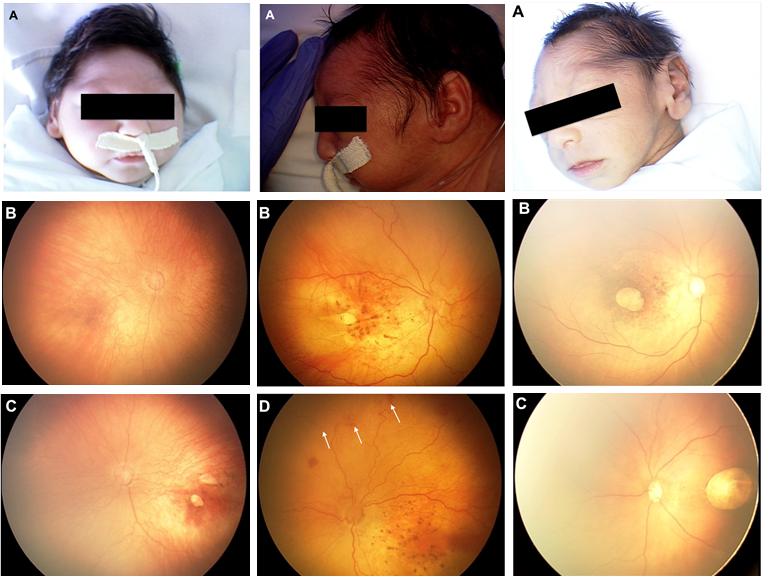Investigators report new ocular findings in 3 infants with microcephaly born to Brazilian mothers who demonstrated Zika symptoms during their first trimester.
An earlier study in February documented 29 Brazilian babies with a presumed Zika diagnosis, and showed that about a third had eye problems, including retinal lesions and optic nerve abnormalities. This case report expands the spectrum of ophthalmic findings to include torpedo maculopathy, vascular changes and hemorrhagic retinopathy.
When the February study was published, most experts were careful to avoid characterizing the relationship between Zika virus and microcephaly as causal, describing the link as a strong association. However, the Centers for Disease Control and Prevention (CDC) in April confirmed that Zika causes severe birth defects, including eye abnormalities.
This month’s study, led by investigators from Brazil and Stanford University, included 3 infants, all of whom presented with bilateral pigmentary maculopathy ranging from mild to pronounced. In 4 eyes, investigators found well-delineated macular chorioretinal atrophy with a hyperpigmented ring developed. Vascular tortuosity was also seen in 3 eyes.
“To my knowledge, the eye problems we found have not been associated with Zika virus before,” said Darius Moshfeghi, MD, senior author and a professor of ophthalmology at Stanford University. “The next step is to differentiate what findings are related to the Zika virus itself versus microcephaly caused by the virus in order to better understand which infants will need screening.”
The authors also suggest that all babies with microcephaly in Zika-infected regions be examined by an ophthalmologist, consistent with the CDC’s recent screening recommendations.
According to a CDC press release, 157 women in the United States and 122 in U.S. territories have tested positive for the Zika virus. The latest report from the Brazilian government indicated that approximately 4,000 infants have been born with microcephaly since the outbreak. An estimated 1.5 million people in Brazil have been infected with the virus, prompting the World Health Organization to declare a public health emergency in February.
In this video from ARVO 2016, Dr. Lee Jampol discusses the symptoms and sequelae of the Zika virus.
